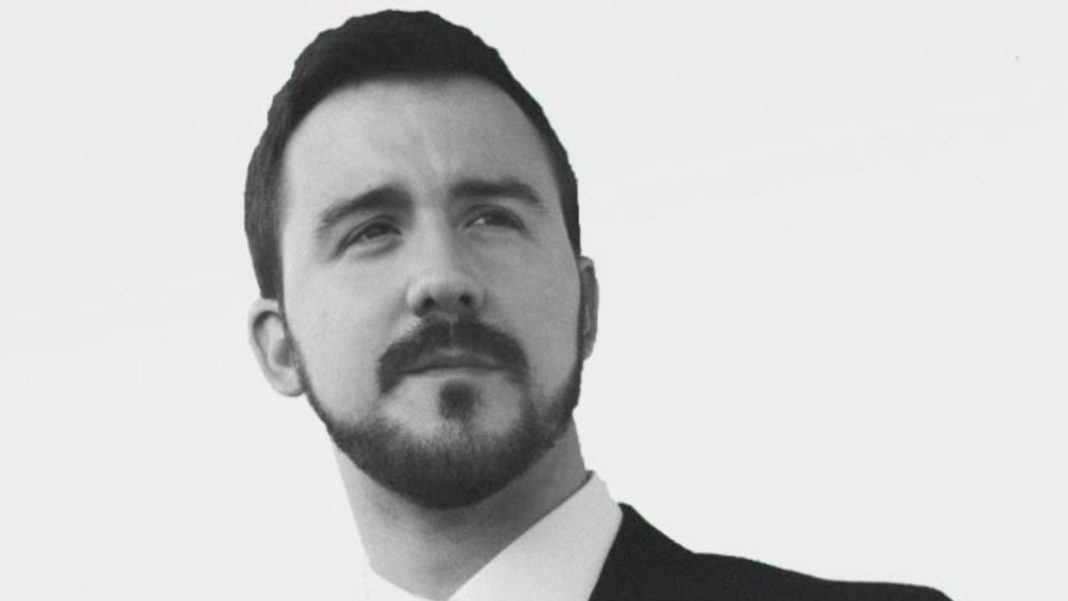Composers have historically been divided in their appreciation, or lack there of, for the trombone. Hector Berlioz said the instrument “can chant like a choir of priests, threaten, utter gloomy sighs.” Richard Wagner, who brilliantly uses the brass section in his work said, “Never look at the trombones, it only encourages them.” Then there’s composer Ricardo Mollá.
“If you study the history of the trombone, some of the pieces of art, Mozart’s Requiem, Brahms symphonies or Mahler symphonies, wouldn’t be what they are without the trombone,” Mollá said.
He should know. In addition to composing, Mollá is also a highly accomplished trombonist. His instrument and the brass section will be on full display Tuesday night at the Hollywood Bowl when his Fanfare for a New Beginning has its world premiere. Tianyi Lu will be conducting the Los Angeles Philharmonic. Also on the program is the U.S. premiere of Thea Musgrave’s Trumpet Concerto and Modest Mussorgsky’s Pictures at an Exhibition.
Last week I spoke by phone with Mollá about Fanfare, the role of music in troubled times and where he sees his careering going. What follows are excerpts from that conversation that have been edited for length and clarity.
Your Fanfare for a New Beginning was commissioned by the Singapore International Low Brass Academy. Yet the premiere is at the Hollywood Bowl with the Los Angeles Philharmonic. How did that happen?
I’m from a little town in Spain. Very close to my home, David Rejano Cantero, principal trombone player of the Los Angeles Philharmonic was born. I have known him for many years and we have a very good relationship. At some point I thought I have nothing to lose. I said, “It would be a dream come true if you at least listen to it.” A few months later he answered me back saying he passed it to the rest of the group. He felt it was a piece with a lot of energy and should be part of the program. I was shocked they really liked it and respected the music. This is how finally it was programmed with the orchestra which makes me feel very honored and happy.
Fanfares are traditionally short pieces. What are the challenges in creating an impactful piece in a brief amount of time? How tightly threaded must your ideas be to accomplish what you set out to do?
I’m a beginner composer. I’m 29 years old now. I’m aware I have a lot to learn. One of the common mistakes is to have extra material for a piece. Sometimes you are working on new music and suddenly three or four melodies that are very interesting come to mind. Your first reaction is to use them all in one piece. At some point you have to organize elements in a way that you create beauty at the end. Sometimes when you add too much material to a single piece of art it becomes too dense and nothing can be understood. I would say the biggest challenge is to be aware when you have to delete part of the music you like.
It seems as though premieres are easier to get than follow-up performances so a composer’s work can be heard more broadly. What can you do as the composer to get your work heard?
The first important thing is if the piece works. If the piece doesn’t work, it won’t be a big success. The piece really needs to be a piece of art and people appreciate what it can offer. Nowadays if you are not on social media or any other platforms, it’s difficult for people to know what you write exists. If a piece is premiered but not recorded, either video or audio, so people can experience it at home, it’s very difficult to make it to the rest of the world. Maybe the third point to a piece being successful is a bit of luck.
Following your work on this program is Thea Musgrave’s 2019 Trumpet Concerto which she wrote at the age of 91. Do you see yourself writing music into your 90s?
Of course…unless I lose some abilities. I don’t see myself retiring. I’m kind of an obsessed worker when it comes to composition. It’s just one of my needs. It’s kind of my meal every day. When I think about getting old I just see composers and conductors who have been working until their last days and I kind of se myself in that position.
There are probably two well-known fanfares: the 20th Century Fox Fanfare by Alfred Newman and Aaron Copland’s Fanfare for the Common Man. Copland said, “So long as the human spirit thrives on this planet, music in some living form will accompany and sustain it and give it expressive meaning.” We’re living through challenging times. What role would you like your music to play as we move through and beyond our present-day challenges?
This is a very challenging question actually. I feel like there is no wrong music. Music isn’t bad or good. It’s just what the composer wants to tell. You can hear it or not. The only thing I would like to do for the rest of my life is write whatever I want and whatever I feel. If people like it, it would be a great thing. If they don’t, I will not try to change my message. Music is just expressing what you have inside. You should create the best music you can with the knowledge you have and the experiences you’ve learned and just see what happens. Being constant and never stop working and enjoy what you do. That’s the pillar of the equation.
Photo: Ricardo Mollá (Courtesy Los Angeles Philharmonic)












